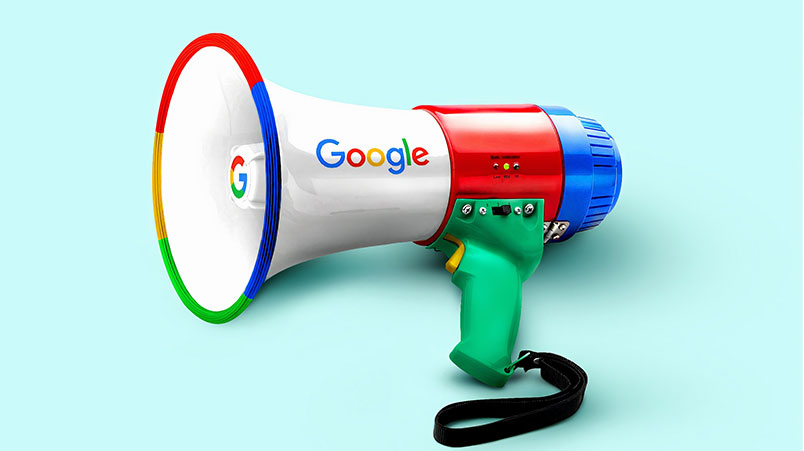What happens next if Facebook, Google pull from Australia? Think tank says prepare for possibilities

Some adland leaders say Google may have kicked an own-goal
Facebook and Google are doing all they can to resist regulation – and their threats to pull news services are rated as “likely” outcomes by two think tanks. While taking the nuclear option and pulling out entirely appears far-fetched, Australia must plan for life without the duopoly in their current form.
Killing time
Australia needs to prepare for Google and Facebook to make good on their threats. Rather than pay for the news their platforms carry following the ACCC’s draft news media bargaining code, they may just kill off services. If they do, can Australia survive without the duopoly?
The chances of Google and Facebook pulling out of Australia entirely are slim. The two tech media-giants trouser 81%, roughly $8bn, of Australia’s digital ad dollars each year, per the ACCC’s interim report, published last Friday, all the while increasing their advantage with deep data gathering on most of the population.
Even if the duopoly end up facing fines or fees running to hundreds of millions, they can afford it. In the scheme of things, despite their posturing, they may ultimately deem a higher cost of doing business to be worth it.
But there is a fair chance that they pull news from their platforms, or curb it. Google’s campaign against the code has been extensive. Though the firm has not explicitly stated it will pull news, it did so six years ago in Spain when similar measures were introduced (referral traffic initially dipped, the market has since adjusted).
Facebook has been more direct, stating it will not countenance the ACCC’s bargaining code as it stands and will “stop allowing publishers and people in Australia from sharing local and international news on Facebook and Instagram”, according to local MD, Will Easton.
“Likely” to pull news
Think tanks The Australia Institute and its affiliated Centre for Responsible Technology suggest it is “likely” that Google withdraws or curtails its Google News service in Australia and “likely” that Facebook removes news publishing and sharing for Australians.
The two have conducted a scoping exercise in a bid to gauge risk factors and viable alternative options should the platforms go further.
Beyond news, their ‘Tech-Xit’ paper, rates further service curbs, such as Google and Facebook pulling their ad services and stacks as “unlikely”. They rate Google taking away all of its tools – email, operating systems, browsers, maps, business systems, smart speakers, the works – as “highly unlikely” while presenting a logistical and legal minefield.
But they rate the Facebook equivalent as potentially more likely. The report states that risk is: “Contingent on government regulation and response; Facebook has threatened Ireland with a full removal of services and appears to threaten removal of services more explicitly than Google.”
However, the think tanks warn even the “likely” soft option of pulling news rather than coughing up per the code would be disruptive – with greater repercussions from potential Facebook action.
If Google withdraws or curbs Google News, the market would face “some disruption” but would eventually settle down, suggests the paper.
But Facebook removing news publishing or sharing would present “very significant” impact and “very concerning” risk, because almost a third of Australians use the platform as their primary source of news. Without actual news on the newsfeed, the risk that fake news and misinformation “runs rampant” increases.
In both cases, smaller publishers and businesses would suffer, per the paper, with larger publishers and businesses adjusting over time.
Nuclear fallout
Although the risk of platforms pulling further services is deemed small, the think tanks argue that Australia should measure how deeply their ‘free’ services have become entwined within society and business and be prepared to develop alternatives should Facebook and Google press the red button.
Following an industry roundtable, key risk mitigation recommendations included:
- Significant strengthening of the consumer data privacy act so that “personal information” includes technical digital data such as IP address, device identifiers, location data and other online identifiers. Plus data collection turned off as default, clearer consents, and the right to delete data.
- Developing a national Technology Risk Mitigation Strategy and determining how pervasive Google has become in core public sectors.
- Better harnessing government procurement, tax incentives and private investment in Australian tech firms and start-ups.
- Developing viable alternatives to Google and Facebook – whose business models are not based on surveillance capitalism.
Meanwhile, the paper suggests that companies that profit from peoples’ data should actually be made to pay individuals for its use.
It’s unlikely even the ACCC will go that far – for now at least. But whichever side of the debate you sit, the next move by regulators to regulate, and companies to evade regulation, could prove pivotal.
While some highly informed Australians see the media bargaining code ultimately as a sideshow that risks legitimising other behaviour, it’s also a warm-up for the main antitrust and privacy battles taking place in Australia, the US, Europe, and rumour has it, China.
Maybe the platforms can see off all of those governments and states. But it may well be prudent to prepare for life without the platforms and their services as we know them today. Doing so can only strengthen Australia’s hand in the battles to come.
Read the ACCC’s interim report here.
Read the Australia Institute/Centre for Responsible Technology paper here.

